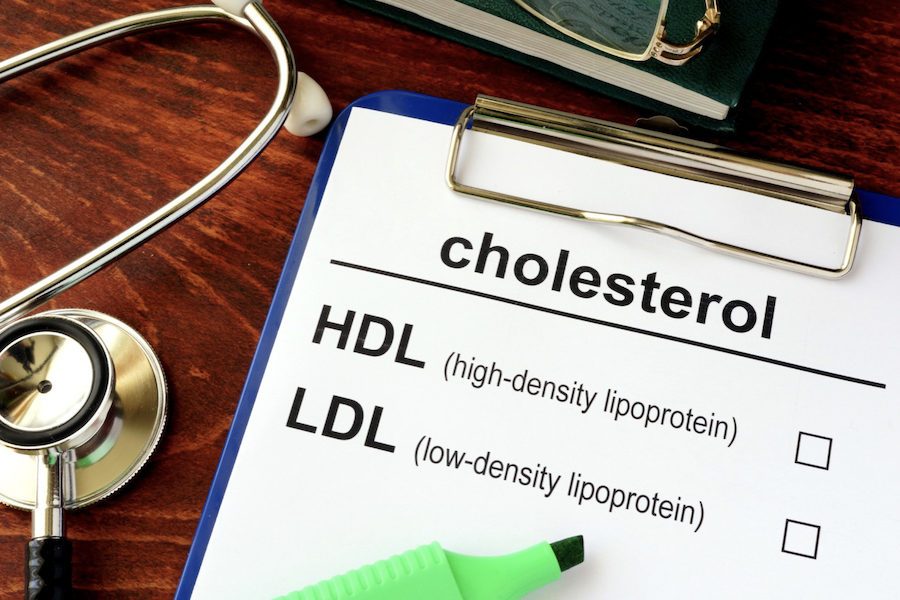Did you know that almost 29 million American adults have high cholesterol? Cholesterol is a waxy substance found in the blood that you need for certain bodily functions. If you have high levels of cholesterol in your blood you are at higher risk of heart disease.
In some cases, medication may be required to lower cholesterol levels. In this blog post, we’re going to answer the question “at what cholesterol level is medication required?”
Types of Cholesterol
First, it’s important to understand the different types of cholesterol. Low-density lipoprotein (LDL) cholesterol, also known as “bad” cholesterol, can build up in the walls of arteries and lead to blockages. This is when percutaneous coronary intervention is important to look into.
High-density lipoprotein (HDL) cholesterol, is also known as “good” cholesterol. This helps remove excess cholesterol from the blood.
Triglycerides
Another kind of blood lipid is known as triglycerides. This helps store any extra calories from the food that you eat so that your body can use it for energy. The problem is that high triglycerides just like cholesterol can harden your arteries, and it can lead to either a stroke or a heart attack.
Doctors can perform a blood lipid profile test to measure both your triglycerides and cholesterol. Having a total cholesterol level that is less than 300 milligrams per deciliter is considered healthy. Also, HDL cholesterol that is above 50 mg for females and 40 mg for males is a healthy amount.
Triglycerides below 150 mg are considered healthy. Also, LDL cholesterol less than 130 mg or less than 100 mg if you have diabetes or heart disease is healthy. A doctor will recommend avoiding alcohol, increasing exercise, and cutting back on fats.
At What Cholesterol Level Is Medication Required?
According to the American Heart Association, the following cholesterol levels are considered desirable (milligrams per deciliter):
- Total cholesterol: less than 200
- LDL (“bad”) cholesterol: less than 100
- HDL (“good”) cholesterol: 60
- Triglycerides: less than 150
For those that have cholesterol levels that are above this, the doctor will more than likely recommend a couple of lifestyle changes. They might recommend regular exercise and changing to a diet focused on a healthy heart.
These few changes should help lower your cholesterol. If they don’t, a doctor will prescribe medication to help.
Also, if you have peripheral arterial disease or if you have had a heart attack, your doctor might prescribe medicine. People that are between 40–75 years old and have diabetes or an LDL cholesterol that is 70 mg/dL or higher have a higher chance of being prescribed medicine.
Taking Medications
The decision to take cholesterol-lowering medication should be made in consultation with your doctor, taking into account your overall health, medical history, and other risk factors for heart disease.
Some common medications used to lower cholesterol include statins, bile acid sequestrants, and niacin.
Familial Hypercholesterolemia
One type of high cholesterol is known as primary high cholesterol which is known as FH (familial hypercholesterolemia). This type of cholesterol is when high cholesterol runs in your family. It can lead to you having LDL cholesterol which automatically puts you at high risk of heart disease even if you are young.
Doctors will treat FH with regular exercise, a low fat diet, and certain medications. The most common meds used to treat FH include nicotinic acid, statin, bile-acid binding drugs, Zetia, fibrates, or Leqvio. In some cases a doctor might prescribe PCSK9 inhibitors because it helps block a protein that helps lower LDL in your blood.
Secondary High Cholesterol
Secondary high cholesterol is another type of high cholesterol. This is linked to hypothyroidism, diabetes, heavy drinking, high fat diet, lack of exercise, or chronic kidney disease.
Secondary high cholesterol is treated with more exercise, a heart healthy diet, losing weight for those that are overweight, and quitting smoking. The medications used to treat secondary high cholesterol can include ezetimibe, niacin, statin, PCSK9 inhibitors, omega-3 fatty acids supplements, and fibrates.
Low HDL Cholesterol
People that suffer from low HDL cholesterol might be due to having an HIV infection or from smoking. Kidney problems and uncontrolled diabetes is another cause. Sometimes low HDL cholesterol might be caused from drugs that include steroids, or beta-blockers.
A doctor will normally treat low HDL cholesterol with a diet that is low in saturated fats, and trans fats. Doctors also recommend no smoking, limiting alcohol to one drink per day, and getting plenty of exercise. Medications used to treat HDL cholesterol include statins, niacin, Zocor, Crestor, or fibrates.
Coronary Calcium Scan
In some cases, a doctor will recommend doing a coronary calcium scan. This scan will help detect the presence of calcium deposits in the coronary arteries. This can be an early indicator of plaque buildup and an increased risk of heart disease.
The test will have you lie down on a table while a CT scanner takes images of your heart and surrounding arteries. Then the images are analyzed to determine the amount of calcium present in the arteries.
If you have a high calcium score it means that you have more plaque buildup. This puts you at a higher risk of heart disease.
Feeling Like a Cholesterol Pro?
Now that you learned the ins and outs of cholesterol and the answer to the question “at what cholesterol level is medication required?” we hope you are feeling a lot more knowledgeable. Remember that taking medication for your cholesterol is something that you need to speak to your doctor about.
If our article came in handy make sure you continue browsing this section for more tips.

